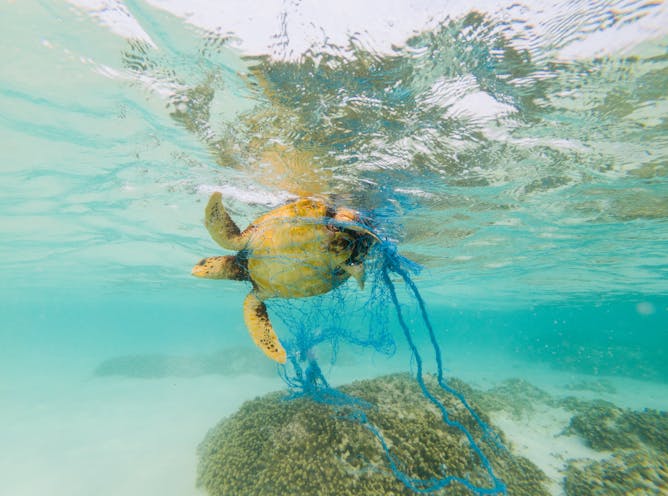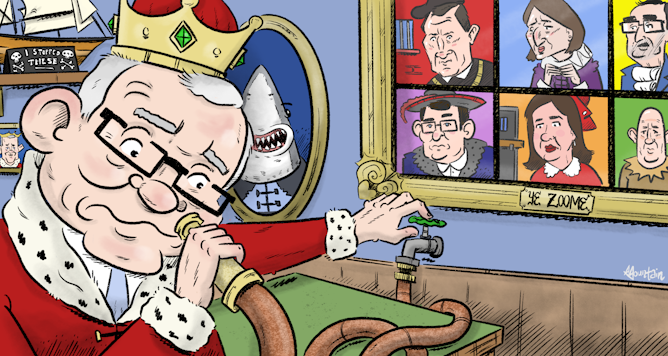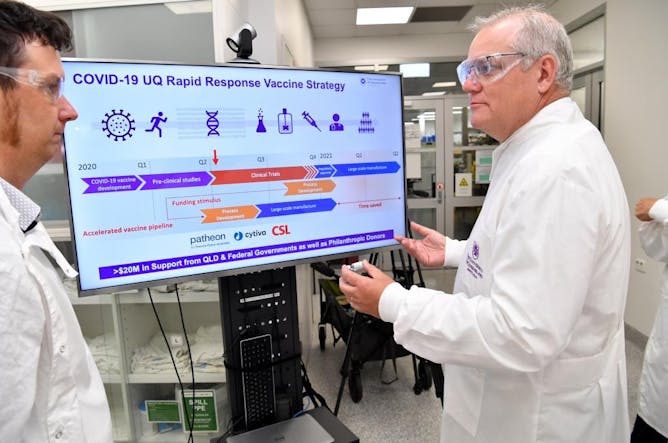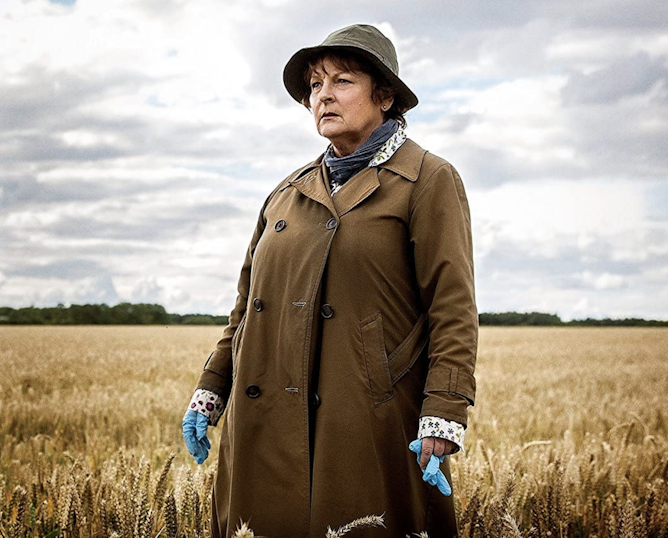|
|
|
|
As we head into summer and back to the beach, we in Australia will be lucky enough to experience pristine coastlines, crystal clear water, and perhaps even a glimpse of some of our favourite sea life such as dolphins or rays.
But what we see belies the experience of so many of our beloved sea creatures, who are choking underwater. On our plastic.
New research from CSIRO has examined the deadliest forms of plastic in our oceans in terms of the damage it wreaks on sea life. They found flexible plastics, such as plastic sheets, bags and packaging are the deadliest across all species.
The good news is plastic bag bans are already showing reductions in this type of waste ending up as litter, but we can do more. Penalising fisheries for loss of lines and nets could reduce the type of plastic waste that kills the most large sea animals like seals and sea lions.
And of course we can all reduce our plastic use — especially plastic food wraps and balloons. Small prices to pay to keep these wonderful creatures alive.
|
Alexandra Hansen
Deputy Editor and Chief of Staff
|

|
|

Shutterstock
Lauren Roman, CSIRO; Britta Denise Hardesty, CSIRO; Chris Wilcox, CSIRO; Qamar Schuyler, CSIRO
Plastic in the ocean is eaten by over 700 species, but just a few items are responsible for the most deaths.
|

Wes Mountain/The Conversation
Frank Bongiorno, Australian National University
Once upon a time, a king ruled a land untroubled by much. But then, one hot and smoky summer, everything started to change ...
|

Prime Minister Scott Morrison at the University of Queensland laboratory earlier this year, ahead of today’s announcement its vaccine would not move to the next stage of clinical trials.
Darren England/AAP Image
Adam Taylor, Griffith University
If the vaccine had been widely rolled out, people would think they had HIV when they didn't. But it's not the end of this type of technology.
|

IMDB
Sue Turnbull, University of Wollongong
Sure, she has quirks. But TV detective Vera is no amateur. And Brenda Blethyn's embodiment of her evokes a strong sense of place.
|
Business + Economy
|
-
Andrew Hopkins, Australian National University; Deanna Kemp, The University of Queensland
Rio Tinto's own staff wanted the blast stopped.
-
David Peetz, Griffith University
The practice of ‘casual’ employment has become a means to foster insecurity and low power, depriving many workers of leave under the guise of an alleged need for flexibility.
-
Paul Graham, CSIRO
The latest estimates of electricity generation costs in Australia find renewables will soon be the cheapest even with grid integration expenses.
|
|
Science + Technology
|
-
Mahmoud Elkhodr, CQUniversity Australia
New Zealand has joined a long list of countries using Google and Apple's mobile contact tracing framework. But if it's not compatible with Australia's app, what does that mean for travellers?
|
|
Education
|
-
Ilana Finefter-Rosenbluh, Monash University
Standardised tests or exams have been in place in a number of educational systems for nearly two centuries. They are rooted in reformers’ desire to regulate schooling and hold educators accountable.
|
|
Politics + Society
|
-
David Peetz, Griffith University
The government's latest industrial relations reform does little to change the power between employers and employees - with the former still strongly advantaged.
-
Michelle Grattan, University of Canberra
University of Canberra Professorial Fellow Michelle Grattan and University of Canberra Assistant Professor Caroline Fisher discuss the week in politics.
-
Kaz Ross, University of Tasmania
New far-right groups have emerged during the pandemic and existing groups have become more radicalised and increased their memberships.
|
|
Environment + Energy
|
-
Pep Canadell, CSIRO; Corinne Le Quéré, University of East Anglia; Glen Peters, Center for International Climate and Environment Research - Oslo; Matthew William Jones, University of East Anglia; Philippe Ciais, Commissariat à l’énergie atomique et aux énergies alternatives (CEA); Pierre Friedlingstein, University of Exeter; Robbie Andrew, Center for International Climate and Environment Research - Oslo; Rob Jackson, Stanford University
The pandemic, along with other recent trends such as the shift towards clean energy, have placed us at a crossroad: the choices we make today can change the course of global emissions.
|
|
Health + Medicine
|
-
Nicholas Wood, University of Sydney; Ketaki Sharma, University of Sydney
Reports of two UK health workers having allergic reactions after receiving Pfizer's COVID vaccine have led to safety warnings for others at risk of anaphylaxis.
|
|
| |
Featured jobs
|

|
|

|
— Melbourne VIC, Australia
|

|
— Melbourne VIC, Australia
|

|
— Townsville City, QLD, Australia
|
|
|
|
Featured Events & Courses
|

|
8 week online course by BehaviourWorks Australia, Victoria, Australia — Monash University
|

|
Online, Melbourne, Victoria, 3145, Australia — Monash University
|

|
Online, Free webinar, Victoria, 3000, Australia — Australia New Zealand School of Government
|

|
Online, Online, Victoria, 3145, Australia — Monash University
|
|
|
|
| |
| |
| |
| |
| |
|
|
|
|
|
|
|